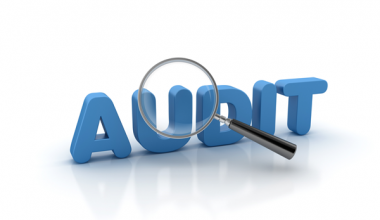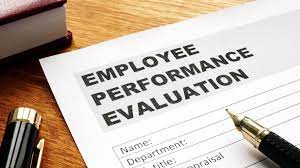If you own or are considering starting a small business, I can assure you that you will require a small business checking account. You could jeopardize yourself and your company if you don’t. When you manage a small business, you will have a lot more responsibilities than if you were an individual with a personal bank account. To begin, be sure that your business and personal finances are separate. If they aren’t, you could be exposed to risk in a variety of ways, including liability for business debts and litigation, as well as problems when it comes time to file your taxes. To help you achieve all that, we will treat you to the best small business bank account in 2023, with no fees.
Best Small Business Bank Account
Having a professional business bank account is vital whether you’re just starting out or have been in business for a long time. Every business or organization, no matter how tiny, requires one: It is crucial to the financial operations of your company since it collects deposits from customers and makes payments to staff and vendors. It’s also necessary for appropriate bookkeeping, tax reporting, and other legal requirements.
There is no one-size-fits-all solution for a company bank account: What you require depends on the type of company you run, its size, and its complexity. However, there are some account features that all business owners, regardless of their industry, should examine when looking for a financial institution. We’ve combed through the options and selected the finest in numerous categories.
The Best Small Business Bank Account 2023
We looked at about 70 financial institutions to find the best accounts, including the nation’s largest banks based on assets, debit card volume, Internet search traffic, also other factors; the nation’s largest credit unions based on deposits and broad-based membership requirements; and other notable and/or emerging players in the industry. In fact, annual percentage rates, minimum balances, fees, digital experience, and other factors were used to rank them.
- Chase Business Complete Checking
- U.S. Bank Silver Business Checking Package
- LendingClub Tailored Checking
- Axos Bank Basic Business Checking
- Wells Fargo Navigate Business Checking
#1. Business Complete Checking
Chase Bank, J.P. Morgan Chase’s consumer and banking business, has over $3.1 trillion in assets and activities around the world, along with roughly 4,700 locations and 16,000 ATMs. 1 It offers a variety of business accounts based on the size of your company. As well as attractive sign-up bonuses. For example, new Chase Business Complete Checking accounts can get a $300 bonus if they deposit $2,000 within 30 days of account opening. The $2,000 amount must be maintained for 60 days, and five qualifying transactions must be completed within 90 days.
#2. U.S. Bank Silver Business Checking Package
With 74,000 employees and $547 billion in assets, U.S. Bank is the sixth-largest bank in the United States. 1 It was founded in 1863 and is based in Minnesota. Consequently, it has over 3,000 branches in 40 states that serve small businesses (its specialty). Hence, there are no monthly fees with the Silver Business Checking Package. This allows for up to 125 transactions per month, which is sufficient for many small firms.
#3. LendingClub Tailored Checking
LendingClub offers the same FDIC insurance as traditional brick-and-mortar banks and now has over $3.3 billion in assets. More so, the LendingClub Checking account offers an interest rate of 0.10% on balances that are $5,000 and up. Customer benefits include unlimited transactions with no fees, including free ATM withdrawals (it rebates any incurred surcharge) and bill pay.
#4. Axos Bank Basic Business Checking
Since its foundation in 2000, Axos Bank has been positioned as a digital bank. It is a publicly traded firm with assets of about $14.4 billion. 2 “For the busy business owner with minimal checking needs,” it says of its Basic Business Checking account. Furthermore, there are no monthly service fees on this account, and you can get limitless reimbursement for domestic ATM fees.
Wells Fargo, which was founded in 1852, has evolved to become the third-largest bank in the United States, with over $1.7 trillion in assets. 1
In 32 countries, it has about 7,400 outlets and 13,000 ATMs. Because the first 250 transactions and $20,000 in cash deposits each month are free with the Navigate Business Checking account, it’s ideal for cash deposits.
What is Required to Open a Business Checking Account?
In order to open a checking account for your company, you will be required to give certain fundamental information about both your company and yourself. You will also be required to give personal identity in the form of a government-issued ID and your Social Security number, in addition to providing legal papers for your firm.
How To Choose a Free Business Checking Account
In this section, we explained some things one needs to keep in mind before opening a business bank account.
#1. Consider fees and minimum balance requirements.
Look for business checking accounts that don’t charge monthly service fees and don’t require a minimum balance. Also, read the fine print carefully: some accounts are free only if you keep a daily or monthly minimum amount or meet another requirement to avoid paying a service fee.
#2. Look at transaction and cash deposit limits
Examine how many transactions and how much money your company makes each month. Many business checking accounts impose transaction and cash deposit limits, so choose an account that suits your needs.
#3. Evaluate additional account features.
Consider where you can use your business debit card, whether the account pays interest, also whether you have access to online and mobile banking. Make sure you’re aware of any features that could result in additional fees or charges.
#4. Think about how you would prefer to open an account.
Some banks offer a variety of ways to open a business checking account, such as online, over the phone, or in person, while others have fewer alternatives.
How Much Money Should be in a Small Business Bank Account?
The size of your annual business savings fund allocation should reflect the nature of your enterprise. Maintain a 6-month operating expense reserve by setting aside at least 10% of monthly profits. This is especially the case if your company is seasonal and sees the bulk of its revenue within a brief period.
Which Bank is Best for a Startup Business?
The Silicon Valley Bank is the go-to institution for innovative businesses. Novo* is the best online-only bank for instantaneous deposits and withdrawals. Mercury* is the top choice for established businesses just getting started with digital banking. Bluevine* is the greatest business credit card and the best way to earn interest.
What Credit Score is Needed for a Business Bank Account?
A 720 FICO score, 10 years of credit history, and 20% credit card utilization are all requirements, he explained. The essentials: You may or may not be able to open a business checking account depending on your personal credit history and checking account practices. For the Editor: In search of company funding?
Best Business Bank Account With no Fees
#1. Lloyds Bank
The Lloyds Banking Group, includes the Bank of Scotland, Halifax, TSB, and Scottish Widow. This is one of the largest banking providers in the United Kingdom. Therefore, new businesses can get a free day-to-day business account from Lloyds Bank. The person who opens the account must be a sole trader, partner, or business director to be qualified.
After the free banking term expires, you’ll be switched to their basic business current account. This, however, still includes free electronic payments, cash withdrawals from a cash machine, and debit card payments. After the trial period, the monthly account maintenance price is £6.50.
#2. Metro Bank
Metro Bank provides a unique banking experience for businesses that do not function from 9 a.m. to 5 p.m. Since they are open seven days a week, not just online or over the phone, but also in-store, where no appointments are important.
To qualify for Metro Bank’s free banking offer, you must maintain a daily balance of over £5,000 for each day of the month. Additionally, if your account balance falls below £5,000, a regular monthly fee of £5 will be charged for that month. The first 50 transactions are likewise free with this deal, albeit some transactions, such as overseas payments. CHAPS transfers, and an Auditor’s Certificate of Balance, are charged.
#3. Bank of Scotland
For the first six months, Royal Bank of Scotland gives free day-to-day business banking to new customers transferring to them, as well as for the first 18 months for new start-up enterprises. The majority of transactions fall into this category. The account maintenance charge is £6.50 once the free banking time finishes, however you still get free electronic payments, cash withdrawals from a cash machine, and direct debit payments.
Hence, their business bank account includes a straightforward price structure and an online calculator to assist you to figure out how much the account will cost after the free trial period has ended.
#4. Yorkshire Bank
Yorkshire Bank’s free day-to-day business banking offer is offered to businesses that want to move their current account. You must have a yearly turnover of less than £2 million to be eligible. New companies must have been in operation for less than a year.
The majority of transactions are free, although a few are still charged, such as foreign payments and CHAPS transfers, and there are some cash withdrawals and deposit limits.
#5. HSBC
HSBC provides a free day-to-day business banking period of 12 months for new customers and 18 months for new business start-ups to both new customers and new business start-ups. All customers are converted to their fixed price tariff at the end of the free banking period. Thus, this includes 12 months of free transactions (excluding cash deposits exceeding £3,000 per month) and a monthly account cost of £5.50. You will be transferred to one of their two current accounts at the end of this period.
#6. TSB
Both new clients and new business start-ups can get 18 months of free day-to-day business banking from TSB as long as the account keeps within the agreed-upon limits and does not go overdrawn without prior arrangement.
TSB is a member of the Current Account Switch Guarantee, which means you should be able to switch current account providers smoothly within seven working days. They also provide a variety of business tariffs from which you can choose the best one for your company.
#7. Cooperative Bank
All new customers who work within the account’s rules are eligible for a free day-to-day business banking term from Cooperative Bank. To be eligible, you must have a credit balance of at least £1,000 on your account. The deal also restricts certain transactions to a monthly maximum of 100 cheque deposits, £2,000 cash deposits, and 30 cheque-writing operations.
You will be switched to their standard Business Directplus tariff at the end of the free banking period, which includes a £5 monthly account maintenance fee.
#8. BlueVine
If you run an internet business or one that doesn’t deal in cash frequently, an online business bank account will give you a number of advantages that a traditional bank won’t.
For example, BlueVine charges no fees for as many transactions as a company wants to make. The most significant advantage is that there is no payment for having an account. In addition, It’s comforting to know that if you’re starting a new business, you won’t have to worry about where the money will come from to cover the bank account cost. Building a business requires time, and sales don’t always happen right away.
#9. Chase
Because it is the largest bank in the United States and has perfected how business banking should be done, Chase is the finest national bank for startups. Furthermore, they have everything a startup business needs, including no minimum deposit requirements for opening an account. And a large network of branches and ATMs across the country.
#10. Wells Fargo
For startups and entrepreneurs who require a local presence from their bank, the Wells Fargo Simple Business Checking account is the perfect option. More so, this is true for one simple reason: Wells Fargo makes business banking simple by providing four distinct business bank accounts tailored to each stage of a company’s development.
#11. Capital One
Capital One’s Spark Business Checking Account is the ideal business bank account for e-commerce companies and entrepreneurs. Also, this is able to exploit its internet-based financial institution to adopt cheap costs for its e-commerce banking consumers, making it the best in this area.
An e-commerce business (electronic commerce) is a type of online business that connects customers and sellers.
This business model may link businesses to businesses, businesses to consumers, or even consumers to consumers, but at the end of the day, it’s about conducting business totally online, free of time and location constraints. It’s an excellent business strategy for putting up an autopilot firm that allows a business owner to earn money even while sleeping (think of Jeff Bezos and Amazon).
#12. Silicon Valley Bank
If you’re looking for the best bank for tech companies to use for business checking accounts, you’ll be astonished to hear that Silicon Valley Bank (SVB) is used by half of all venture-backed tech firms, and for good reason.
#13. Consumers Credit Union
Credit unions are the greatest banks for real estate investors, and we recommend Consumers Credit Union. Since they have the best business checking accounts with the highest interest rates.
Which Type of Account is Most Suitable for Business?
A business checking account is the type of deposit account that offers the most flexibility and is the most common. You can add money to the account, withdraw cash, make payments, and transfer funds just like you would with a personal bank account.
Should I Open a Separate Bank Account for My Small Business?
The Internal Revenue Service encourages all owners of small businesses to open individual bank accounts for their companies. Even while a sole proprietor, who is defined as an individual who owns a firm and is individually liable for its debts, is not required by law to use a business checking account, doing so is nevertheless recommended from a financial and tax planning standpoint.
Does it Matter What Bank You Use for Your Business Account?
There is not a single optimal kind of bank account for a company to have: What you require will change depending on the nature of your company, its size, and the level of complexity it entails. Having said that, there are a few standard account features that all business owners, regardless of the sector in which they operate, should take into consideration while searching for a new financial institution.
Conclusion
Business bank account features might range from sign-up bonuses to simple cash deposits. Before deciding where to bank, think about all of the factors.
Whatever perk or feature is most important to you, having the correct business bank account is critical to the success of your company. This account is where you deposit money and pay your bills. It’s also a good idea to re-evaluate your business bank account every year as your company grows. Pay attention to transaction limits, fees, restrictions, and advantages to ensure that the account you used yesterday is still appropriate for your business today and tomorrow.
FAQ
How much does a business bank account cost?
So it’s important to compare fees closely when shopping for a bank to meet your business needs. Many banks will waive the business account monthly maintenance fee (ranging from about $12-20 per month among major banks)
Can you be denied a business bank account?
As you probably know, when you apply for a business bank account, the bank in question will run a report to see your history with your checking and savings account.
Is it easy to open a business bank account?
Opening a business bank account is easy once you’ve picked your bank. Simply go online or to a local branch to begin the process.
Related Articles
- Open a Free Business Checking Account Online With No Deposit, Updated!!!
- BANK ACCOUNT APPLICATION DECLINED? How to go About It!!!
- Investment Banking Analyst: Job Description, Skills, Resume & Salary In The US
- Open Banking: Definition & How it Works
- OFFSHORE BANK ACCOUNT: How to Open an Offshore Bank Account






